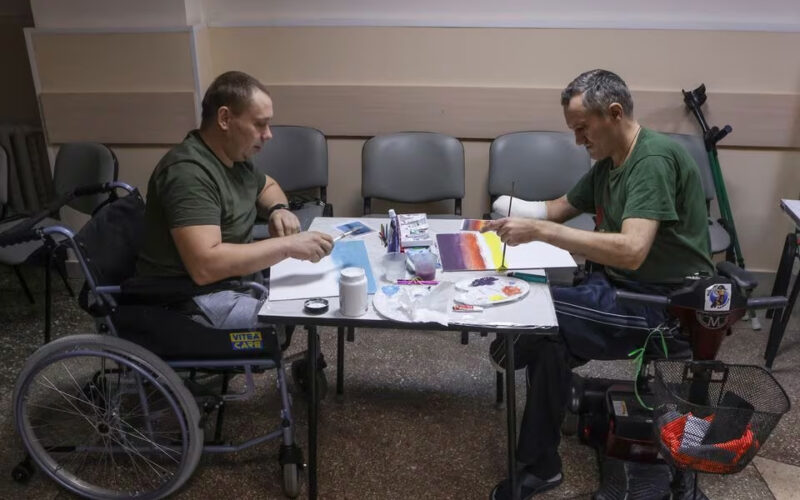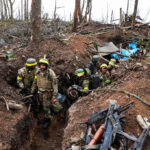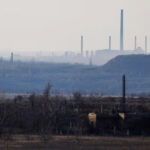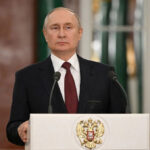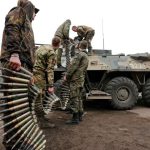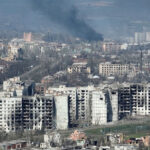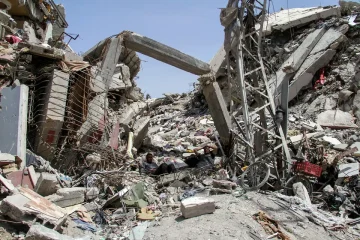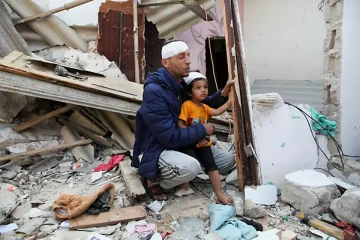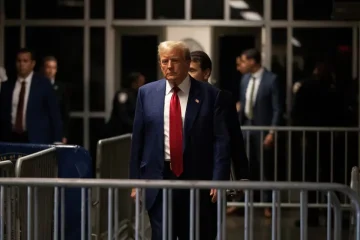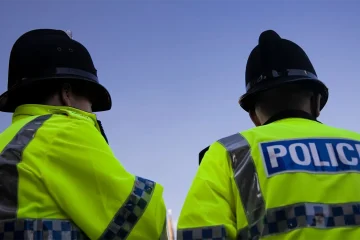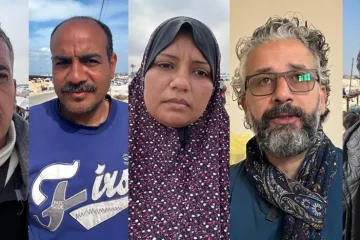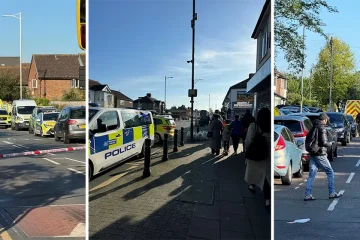PSYCHOTHERAPIST Oleh Hukovskyi stands beside a whiteboard in a makeshift classroom in eastern Ukraine and addresses a group of soldiers attending a session on how to cope with the stress of war.
The former psychiatrist joined the armed forces about six months after Russia launched a full-scale invasion in February 2022, and now runs a psychological support group attached to the 67th Separate Mechanised Brigade in the direction of the ruined town of Lyman.
The classes cover basic psychological theory and coping techniques including breathing exercises. While the dozen soldiers attending are responsive to questions and suggestions, Hukovskyi is aware he can only do so much in the time provided.
“They have obligations and have to return to the frontline,” he said of the troops, some of whom are being treated for light wounds and battle stress at a medical aid centre whose location the Ukrainian military requested not be disclosed.
“Any intervention we are making is to stabilize them to some degree and that’s all,” the 41-year-old told Reuters. “So it’s not for full recovery from any kind of symptoms. It’s not possible in the conditions we work under.”
While many soldiers who seek psychological support return to battle after short breaks, some more serious cases are sent for further treatment at rehabilitation points away from the front.
Hukovskyi is one of hundreds of professionals and volunteers across Ukraine treating soldiers for mental health problems, a growing challenge for an army experiencing exhaustion as it seeks to hold a much larger enemy at bay.
Many of those fighting joined as volunteers, meaning they had little, if any, preparation for sometimes fierce combat under artillery, mortar and drone fire.
“Ukraine has an army of mobilised citizens who just yesterday were teachers, artists, poets, IT specialists, or workers,” said Dana Vynohradova, deputy brigade commander for moral and psychological support.
“We don’t have the capacity to conduct comprehensive psychological training for military specialists.”
The Ukrainian military has tried to recruit more people for the “first line” of response – psychological support.
Ukraine’s armed forces declined to answer questions on the scale of the recruitment drive and how many soldiers had been treated for psychological conditions since the start of the invasion. Such details are often treated as military secrets.
Reuters interviewed 13 people involved in supporting troops and four soldiers undergoing treatment, from short-term care over a few days to weeks-long rehabilitation for more serious cases of trauma as well as amputees learning to live with their injuries.
They spoke of exhaustion, stress, anxiety, fear and guilt, but also of camaraderie, a sense of obligation to hurry back to units in which they served and strong motivation to repel the enemy.

NIGHTMARES AND FEAR
Hukovskyi said Ukrainian soldiers were not rotated often enough. As the war drags on and Russian defences hold, pressure is growing on Kyiv to find more people to join up while not hollowing out the struggling economy.
“Forty-five days is a critical period when soldiers can stay and … have a chance to stay mentally healthy,” he said.
“We have a situation where they can be (deployed for) much longer, and they are getting a lot of concussions, a lot of bad combat fatigue.”
Attending Hukovskyi’s class last month was “DJ”, a former factory worker from central Ukraine who, like most other troops, goes by his call sign.
“I have nightmares and they exhaust me. When I get some time to rest, I don’t sleep at all,” he told the session.
Later, sitting on the edge of his bed in a dormitory and flicking through photographs on his phone, DJ explained how he had not been prepared for the ferocity of combat.
“When I first went into the war and to the front line, then it dawned on me,” said the shaven-headed 50-year-old, wearing Ukraine’s “trident” coat of arms as a pendant and an earring.
“At first I didn’t understand what mortar shelling, tank shelling, artillery shelling was … It turned out my psyche could not endure forever.”
He said his position in the Lyman direction of the front came under Russian fire “24/7”. Like some others, DJ added that he suffered from post-traumatic stress disorder (PTSD) and concussion.
On a rainy November day in a nearby village – its damaged houses a reminder of fighting when the area was temporarily held by Russians in 2022 – Dmytro, a soldier in the 21st Separate Mechanised Brigade, walked along chatting to Serhii Rostikov, the unit’s stress control group leader.
According to Rostikov, soldiers decide for themselves whether to seek psychological support, although other specialists said unit commanders could make recommendations if they saw signs for concern.
“After the artillery shelling, I developed a fear of going back to (combat) positions,” said Dmytro, 24, wearing combat fatigues and a hoodie over his head.
“I … reached out to Serhii for help. We worked for a while together, then he sent me for rehabilitation. I have no fear now and can easily go back to a combat position. I think we need psychologists because soldiers suffer from a lot of stress.”
Since the interviews, DJ said he had been kept away from combat for further treatment. Dmytro has rejoined his unit.

